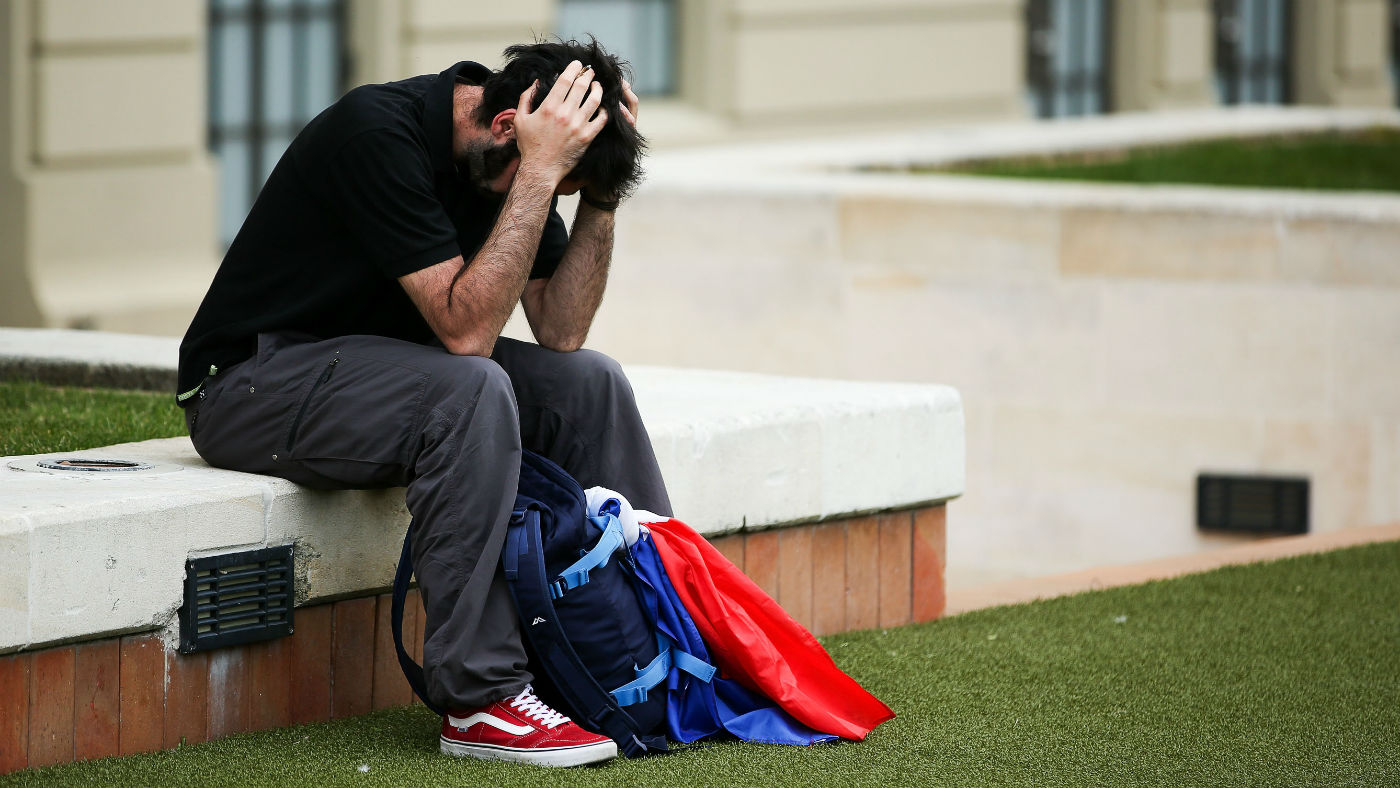Why suicide rates are rising again
Increase in suicides among men and changes in standard of proof cited for first rise since 2013

A free daily email with the biggest news stories of the day – and the best features from TheWeek.com
You are now subscribed
Your newsletter sign-up was successful
The suicide rate in Britain has risen dramatically to the highest level since 2002, official figures show.
In 2018, 6,507 suicides were registered in the UK, up 11.8% on the previous year, according to the Office for National Statistics.
There were 11.2 deaths from suicide per 100,000 people - up from 10.1 in 2017. This means the suicide rate is rising for the first time since 2013.
The Week
Escape your echo chamber. Get the facts behind the news, plus analysis from multiple perspectives.

Sign up for The Week's Free Newsletters
From our morning news briefing to a weekly Good News Newsletter, get the best of The Week delivered directly to your inbox.
From our morning news briefing to a weekly Good News Newsletter, get the best of The Week delivered directly to your inbox.
The BBC says three-quarters of deaths from suicide registered in 2018 were of men, with 17.2 deaths from suicide per 100,000, up from 15.5 per 100,000 in 2017.
Men in their late 40s remain the age group with the highest suicide rate, but young men aged between 20 and 24 and those aged between 80 and 84 also saw rises.
A significant increase was also seen among young girls and women aged 10 to 24.
“While the exact reasons for [the rise] are unknown, the latest data shows this was largely driven by an increase among men who have continued to be most at risk of dying by suicide,” said Nick Stripe, head of health analysis and life events at the ONS.
A free daily email with the biggest news stories of the day – and the best features from TheWeek.com
“In recent years, there have also been increases in the rate among young adults, with females under 25 reaching the highest rate on record for their age group.”
Tom Madders, from the charity YoungMinds, told the BBC he has explored the “complex” reasons why young people might feel such despair.
He said: “We know that traumatic experiences at a young age - like bereavement, bullying or abuse - can have a huge impact on mental health. School pressure, concerns about how you look and difficult relationships with family or friends can also have a significant effect.”
A less dramatic reason for the increase is that changes have been made in the last year to the way coroners record such deaths, explains The Guardian.
In July 2018, the standard of proof used by coroners to determine whether a death was suicide was lowered from beyond reasonable doubt to the balance of probabilities.